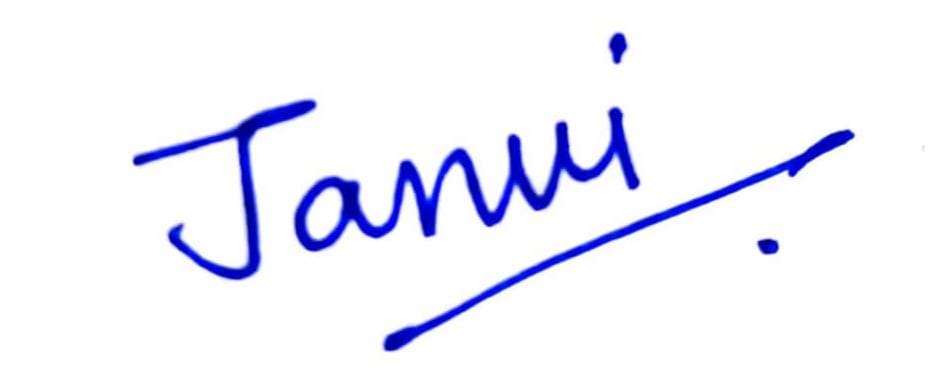Q1. Discuss the idea of State in Hegel’s Political Thought.
Q2. Analyse the main tenets of Hegel’s political philosophy.
Q3. “State is march of God on Earth.” Comment.
Q4. What are the key characteristics of Hegel’s theory of the State?
Q5. What are the three stages of the Hegelian dialectics.

Hey champs! you’re in the right place. I know how overwhelming exams can feel—books piling up, last-minute panic, and everything seems messy. I’ve been there too, coming from the same college and background as you, so I completely understand how stressful this time can be.
That’s why I joined Examopedia—to help solve the common problems students face and provide content that’s clear, reliable, and easy to understand. Here, you’ll find notes, examples, scholars, and free flashcards which are updated & revised to make your prep smoother and less stressful.
You’re not alone in this journey, and your feedback helps us improve every day at Examopedia.
Forever grateful ♥
Janvi Singhi

Give Your Feedback!!
Topic – G.W.F. Hegel (Q&A)
Subject – Political Science
(Western Political Thought)
The statement “State is the march of God on Earth” reflects the philosophical view of Georg Wilhelm Friedrich Hegel, one of the most influential figures in German Idealism. Hegel’s views on the state are central to his political philosophy, as he saw the state not merely as an institution or organization but as a manifestation of a larger moral and ethical order. In his view, the state represents the culmination of human freedom, rationality, and morality, embodying the development of the collective spirit of a people. Hegel’s statement has been interpreted in various ways, as it touches upon complex ideas about freedom, morality, history, and rationality.
Hegel’s Concept of the State
To understand the idea of the state as the “march of God on Earth,” it is essential to grasp Hegel’s broader philosophy of history and spirit (or Geist). For Hegel, history is not a random sequence of events but a dialectical process in which the World Spirit realizes itself through human actions and institutions. This concept of the World Spirit is often considered Hegel’s metaphysical explanation of the rational and moral forces that drive history forward. The state, in this context, represents the highest form of social and political organization, through which freedom and rationality can be fully actualized.
Hegel believed that the individual and collective spirit progresses through various stages, each one more advanced in its moral and rational development. The state, in his view, is the product of this evolution and is the ultimate expression of human freedom and ethical life, or Sittlichkeit. The state, therefore, is more than a mere legal or administrative structure; it is a moral community where individuals transcend their private interests and find self-realization in the collective life.
The Role of Freedom in the Hegelian State
For Hegel, true freedom is not about individual liberty in isolation from others but about participating in a rational social order that reflects universal ethical principles. Hegel distinguishes between subjective freedom—the freedom to pursue one’s personal desires—and objective freedom, which is the freedom one attains when acting in harmony with rational and ethical laws that benefit the community as a whole. He contended that the state provides the highest form of objective freedom because it reconciles the individual’s desires with the collective good.
This view is rooted in the idea that humans achieve true freedom not by escaping social constraints but by participating in institutions—like the state—that embody rational and ethical principles. Hegel argued that only within the structure of the state can individuals achieve self-actualization by aligning their interests with the universal good. Therefore, the state, as the “march of God on Earth,” represents the progressive realization of freedom, where personal interests are subsumed under higher ethical goals.
The State as Ethical Life (Sittlichkeit)
Hegel’s notion of the state is deeply intertwined with his concept of Sittlichkeit, or ethical life. Ethical life, according to Hegel, is the integration of individual morality with the collective norms and values of society. He divided ethical life into three realms: family, civil society, and the state. The family represents immediate unity and care; civil society is the sphere of personal interests, economic activity, and legal rights. The state, however, is the highest form of ethical life, where these earlier stages of development are synthesized and transcend individual and economic interests.
In Hegel’s view, the state is not a mere instrument for enforcing laws but a moral institution that embodies the collective ethical consciousness of its citizens. By participating in the state, individuals become part of a larger ethical entity, which he saw as a divine manifestation of reason and morality. The state’s laws and institutions reflect the collective moral will, which Hegel believed was an expression of God’s will in the world.
History as the Rational Progress of Spirit
Hegel’s famous concept that the state is the march of God on Earth can be better understood within his philosophy of history. He viewed history as the rational and purposeful unfolding of the World Spirit through different civilizations, each contributing to the progression of human freedom and ethical life. Hegel believed that each historical epoch represents a stage in this dialectical progression, moving from primitive tribal societies to sophisticated empires, and ultimately culminating in the modern state.
Hegel argued that this progress is rational and inevitable, driven by contradictions and conflicts that lead to new stages of development. Each stage in history is a synthesis of opposing ideas and social forces, with the state as the final outcome of these dialectical conflicts. For Hegel, the state embodies rationality, universality, and morality, representing the end-point in the historical march of the World Spirit toward freedom.
Example: Hegel cited the Prussian state as a historical realization of rationality and ethical life, though this view is controversial. He saw Prussia’s legal and administrative system as an embodiment of the rational organization of society, where individual freedoms were reconciled with collective ethical responsibilities.
Interpretations and Implications of the “March of God” in the State
The phrase “march of God on Earth” can be understood in different ways. Some interpret it metaphorically, suggesting that Hegel used “God” as a symbol for the World Spirit or collective human rationality. According to this view, Hegel’s concept of God does not refer to a personal deity but rather to the ultimate rational order that governs the universe and reveals itself through the progress of history.
Others argue that Hegel saw the state as a divine institution, with its leaders and structures carrying a kind of spiritual authority. This interpretation has led to criticisms of Hegel’s political philosophy, as some see it as justifying authoritarianism or statism. Hegel’s view that the state is morally superior to individual interests and civil society has led some critics to accuse him of endorsing the absolute authority of the state over its citizens, potentially justifying the repression of individual rights in the name of a “higher” ethical order.
Criticisms of Hegel’s Conception of the State
Hegel’s idea that the state is the “march of God on Earth” has been met with various critiques. Karl Marx, for example, rejected Hegel’s idea that the state represents a divine manifestation. Marx argued that the state, rather than embodying ethical life, is an instrument of class oppression. In his view, the state serves the interests of the ruling bourgeoisie and perpetuates economic inequality, rather than advancing freedom or morality. For Marx, the state was not a rational, divine institution but a tool for maintaining the status quo of capitalist exploitation.
Existentialist thinkers like Søren Kierkegaard and later Jean-Paul Sartre also criticized Hegel’s emphasis on the collective over the individual. They argued that Hegel’s concept of the state subordinates individual freedom and authenticity to an abstract ethical entity, potentially sacrificing personal responsibility and freedom for the sake of collective ideals.
Furthermore, liberal philosophers have raised concerns that Hegel’s view of the state as the ultimate authority can lead to authoritarianism. By elevating the state to a quasi-divine status, Hegel’s philosophy risks placing the state beyond the reach of individual critique and accountability. This has led some scholars to argue that Hegel’s philosophy, if taken literally, could justify totalitarian regimes that claim to represent a “higher” moral or rational order.
Hegel’s Influence and Legacy
Despite these criticisms, Hegel’s concept of the state as a rational and ethical institution has been highly influential. His ideas have shaped political philosophy, sociology, and historiography, influencing thinkers across the political spectrum. His views on the state as a collective ethical life influenced conservative, liberal, and socialist theorists, each interpreting his ideas according to their ideological orientations.
In modern political theory, Hegel’s ideas contribute to debates on communitarianism and the role of the state in promoting social cohesion and moral values. Communitarians, for example, draw on Hegel’s notion of ethical life to argue that individual freedom is best realized within a supportive community and that the state plays a critical role in nurturing these communal bonds. Hegel’s views on history as a rational process also continue to influence historical materialism and theories of progressive history.
Conclusion
Hegel’s assertion that the state is the march of God on Earth encapsulates his belief in the state as a rational, moral, and ethical institution that represents the highest achievement of human freedom and ethical life. For Hegel, the state is not a mere administrative or coercive apparatus but the embodiment of universal principles that allow individuals to realize their freedom through participation in a rational collective order. While his view of the state has been criticized for its potential to justify authoritarianism, it has also been influential in shaping ideas about the state’s role in promoting ethical life and social cohesion.
Western Political Thought Membership Required
You must be a Western Political Thought member to access this content.
